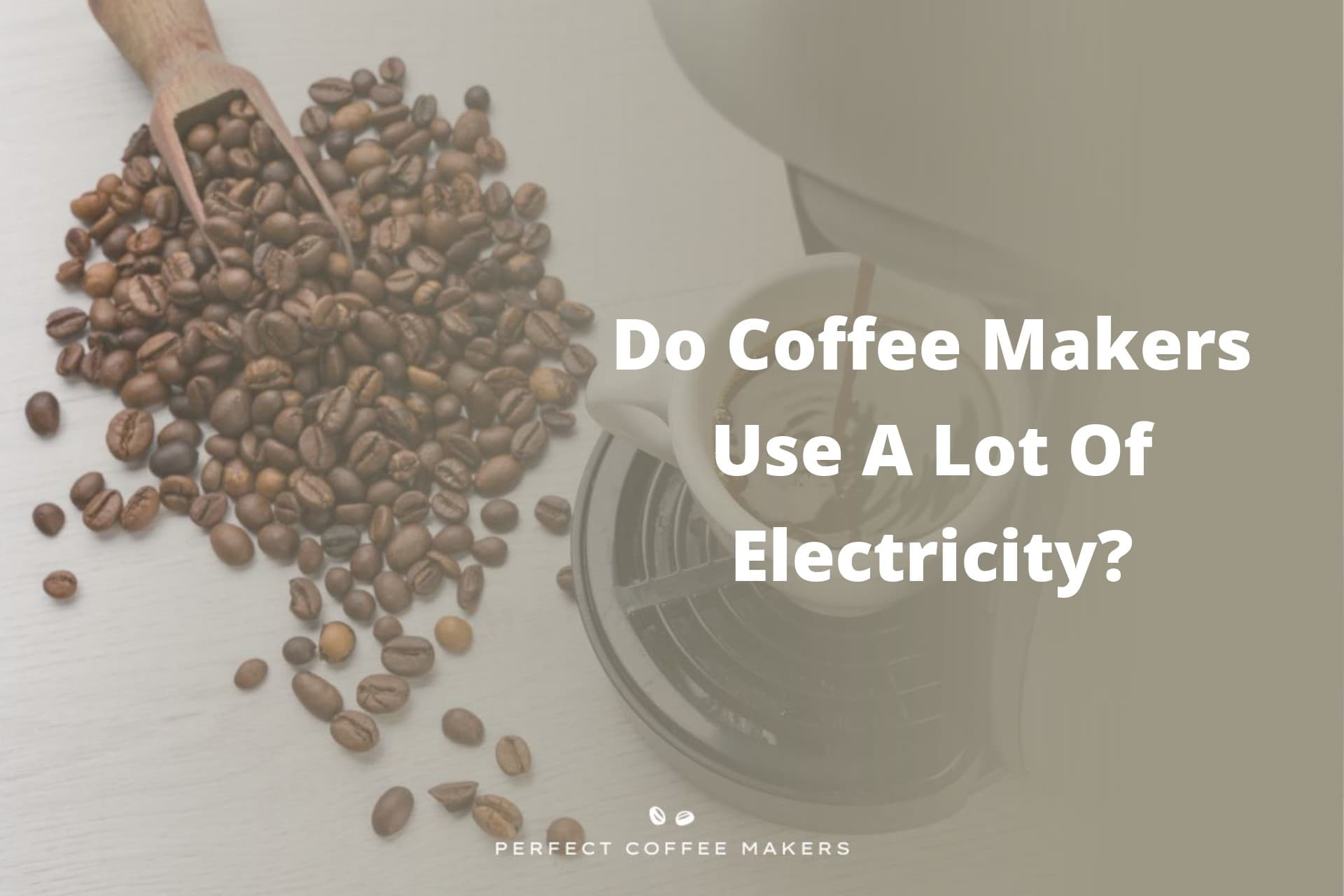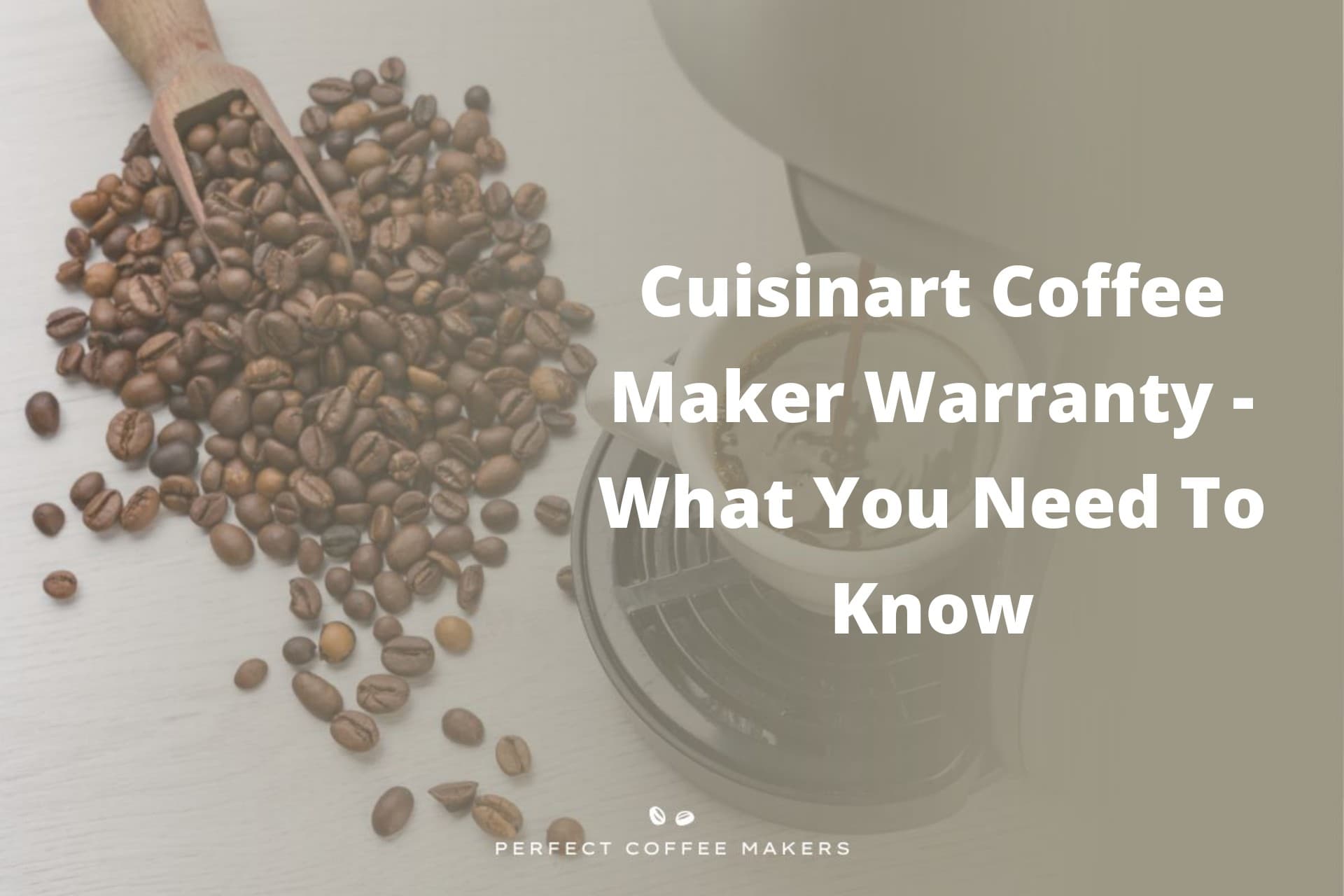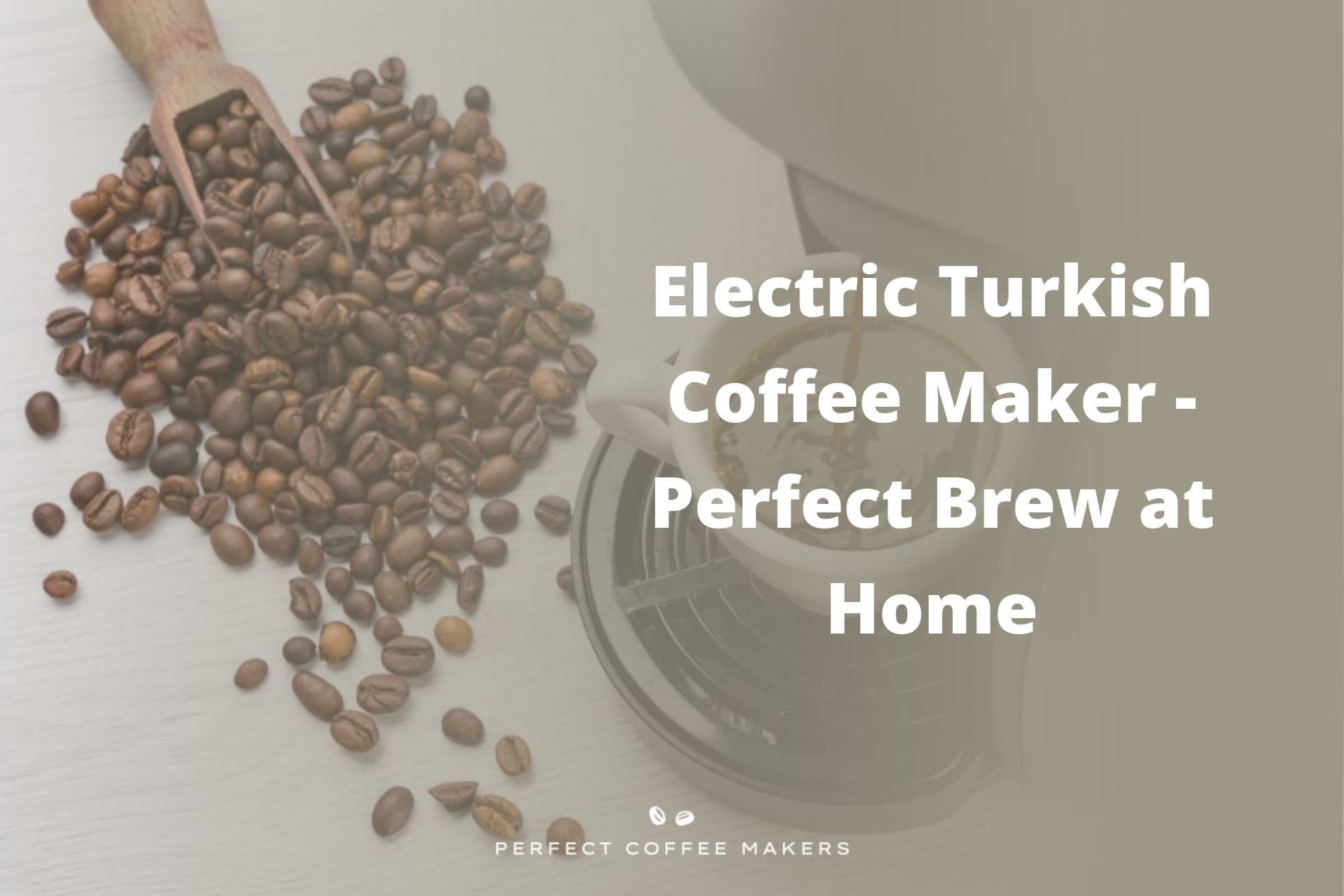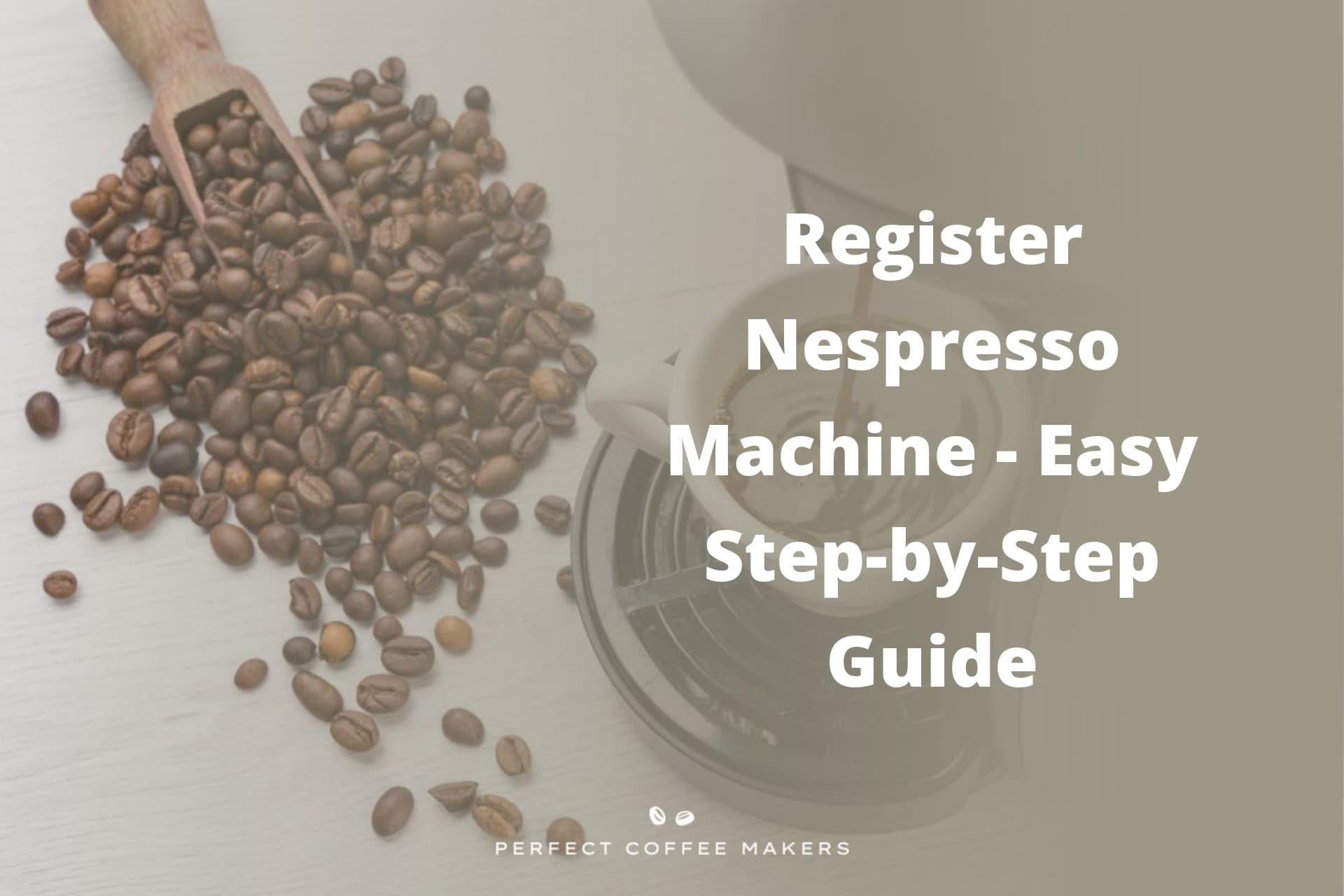As a coffee lover, you might have wondered about the power consumption of your coffee maker. After all, the daily ritual of brewing coffee is a staple in many households, and with the increasing awareness about energy conservation, it’s natural to question whether this beloved appliance is a significant contributor to your electricity bill.
The energy usage of coffee makers depends largely on their model and how frequently they’re used. On average, a standard drip coffee maker uses around 900 to 1200 Watts per hour while brewing. However, if you only brew for about 10 minutes a day, the actual energy consumption is quite low. The energy use can increase significantly if the coffee maker is left on for extended periods to keep the coffee warm.
Different types of coffee makers – from single-cup brewers to espresso machines – can have different energy footprints. Moreover, additional features like a built-in grinder or programmable start times could also influence the overall power consumption. If you’re interested in understanding more about the energy usage of your appliances or looking for tips to reduce your electricity bill, I invite you to continue exploring with us in our subsequent sections. There’s a lot more to learn when it comes to energy efficiency, and every bit of knowledge helps to make a difference!
Factors Affecting Coffee Maker Electricity Consumption
The wattage of an espresso coffee maker can influence the amount of electricity it uses, measured in watts or kilowatt-hours (kWh). Let’s take a closer look at these factors:
- Size and capacity: The size and capacity of an espresso maker can impact its initial energy use, measured in watts. Larger average coffee makers with bigger water tanks or multiple brewing compartments may require more energy to operate compared to common coffee makers. The wattage of the coffee maker is a factor that determines the energy consumption.
- Brewing time, temperature settings, and wattage: The duration, temperature, and wattage at which coffee is brewed also affect the energy consumed by electric kettles. Longer brewing times or higher temperatures generally result in increased electricity usage when using a coffee maker. The wattage of the coffee maker and the type of coffee machines used can also affect the amount of electricity consumed when making coffee.
- Different brewing methods for coffee machines, such as drip or espresso, have varying power requirements. When considering electric kettles or coffee maker wattage, it’s important to understand the specific needs of each brewing method. Espresso machines, for example, often use more power due to their high-pressure brewing process compared to standard drip coffee makers. This is because espresso machines have a higher wattage than regular coffee makers.
- Additional features: Coffee makers with timers or warming plates can contribute to higher electricity consumption due to their wattage and power. These coffee machines features require continuous power to operate, even when the drip coffee maker is not actively brewing. This applies to both espresso makers and electric kettles.
Considering the wattage and power of a coffee machine can help you make an informed decision about its potential electricity consumption. Opting for a smaller wattage machine, being mindful of brewing time and temperature settings, selecting an appropriate brewing method, and considering the necessity of extra features can all help reduce the overall energy usage of your coffee maker.
Average Wattage of Coffee Makers
Coffee makers vary in their power usage, with the average wattage typically ranging from 600 to 1500 watts. The machine uses water to make coffee. Here are some key points to consider when it comes to coffee maker power wattage. It is important to understand the machine’s wattage as it determines the amount of power it consumes. Higher wattage coffee makers can heat water more quickly, resulting in faster brewing times. Therefore, it is essential to choose a coffee maker with the right wattage for your needs.
- Single-cup pod machines, commonly used in espresso coffee shops, typically have lower wattage compared to larger drip brewers. This is because they require less power to heat the water for brewing. These compact coffee machines are designed to use less wattage, making them more efficient and convenient. They consume less water while still delivering a satisfying cup of coffee.
- On the other hand, espresso machines tend to have higher wattage due to their specialized brewing process. This is because they use water to brew. The coffee machine’s ability to extract the rich flavors of espresso depends on the pressure it uses, which requires more power and results in higher wattage consumption.
- When purchasing a coffee maker, it is important to use check the wattage specifications of your specific model. This will give you an idea of how much wattage your coffee maker will use during operation.
- If you’re concerned about energy consumption or want to use your coffee maker in situations where electricity may be limited, opting for a machine with low wattage can be beneficial. These coffee machines are designed to use less wattage without compromising on taste.
- If you plan on using a coffee maker with alternative power sources such as a watt inverter or generator, knowing the maximum wattage of your machine is essential. This ensures compatibility and prevents any electrical issues.
Tips to Reduce Electricity Usage with Coffee Makers
- Use an appropriate-sized coffee maker with the right wattage for your needs to avoid unnecessary energy waste.
- Opt for coffee machines with programmable timers to limit brewing time and save energy. Ensure that the wattage of the coffee machine is suitable for your intended use.
- Consider using thermal carafes instead of hot plates to keep brewed coffee warm without consuming additional electricity. Thermal carafes use less wattage and are more energy-efficient than hot plates.
- Regularly clean your coffee maker’s components to prevent buildup, which can decrease wattage efficiency and increase energy use.
Energy-Saving Features in Modern Coffee Makers
Some modern coffee makers have energy-saving features that can help reduce electricity consumption by regulating wattage use. Here are a few key points to consider:
- Many coffee makers now come with automatic shut-off functions to save wattage and ensure safe use. These features reduce standby power consumption by automatically turning off the machine after a certain period of inactivity. This helps to optimize wattage use. So, if you forget to switch off your coffee maker, it won’t keep using unnecessary wattage.
- Insulation technology in coffee machines: Energy-efficient coffee machines often incorporate insulation technology to improve heat retention and wattage use. This means that once the coffee is brewed, the insulation helps keep it warm for longer periods without constantly reheating it, regardless of the wattage used. As a result, the coffee machine uses less wattage to maintain the desired temperature.
- When purchasing a new coffee maker, look for certifications like ENERGY STAR to ensure the wattage and energy use are efficient. These certifications indicate that the coffee maker meets superior energy efficiency standards set by recognized organizations in terms of wattage and use. Opting for an ENERGY STAR certified coffee machine ensures you’re choosing a coffee machine designed to minimize electricity usage. Use the coffee machine.
- Advanced brewing systems: Some coffee makers feature advanced brewing systems that optimize water temperature and extraction processes. By fine-tuning these variables, these machines can brew coffee more efficiently, requiring less energy while still delivering high-quality results.
Considering these factors when selecting a coffee maker can help you find an efficient model that minimizes electricity usage without compromising on taste or convenience. Whether you prefer drip coffee makers, espresso machines, or single-cup brewers like those used with coffee pods, there are energy-saving options available across various types of coffee machines.
By choosing an energy-efficient coffee maker with features such as automatic shut-off and insulation technology, you can enjoy your favorite cup of joe while being mindful of your electricity consumption. So go ahead and brew your morning pick-me-up with your coffee machine, knowing you’re making an environmentally friendly choice!
Comparing Energy Efficiency of Different Coffee Maker Types
Drip coffee makers are generally more energy-efficient than espresso machines. Single-cup pod machines tend to consume less electricity per serving compared to larger brewers. French press and pour-over methods, both popular coffee machine options, require no electricity, making them the most energy-efficient choices.
Understanding the energy efficiency of different coffee maker types can help you make an informed choice. Here’s a breakdown of the energy efficiency of various machine types:
- Drip coffee makers: These machines use a heating element to warm water and then drip it over ground coffee. Coffee machines are known for their energy efficiency, as they only need to heat the water required for brewing each pot or cup.
- Espresso machines: Espresso machines utilize high-pressure steam or water to extract flavor from finely ground coffee beans. While coffee machines produce concentrated shots of quality caffeine, they tend to consume more energy due to their complex mechanisms.
- Single-cup pod machines: These popular devices use pre-packaged pods that contain the perfect amount of coffee for one serving. Coffee machines are efficient in terms of both time and energy since they require minimal electricity. They heat up only enough water for a single cup.
- French press and pour-over methods: These manual brewing methods rely on hot water being poured over coarsely ground coffee beans. As they don’t require any electricity at all, they are the most energy-efficient options available.
By considering the energy efficiency of different coffee maker types, you can not only save on your electricity bills but also contribute towards sustainable living. So, choose wisely based on your preferences and environmental consciousness!
Understanding and Managing Coffee Maker Electricity Usage
We’ve also discussed the average wattage of coffee makers and highlighted energy-saving features in modern models. We compared the energy efficiency of different types of coffee makers.
Now that you have a better understanding of coffee maker electricity usage, you can make informed decisions to manage your energy consumption. By following the tips we’ve shared, such as using a programmable timer or opting for a more energy-efficient coffee maker type, you can minimize the amount of electricity your coffee maker consumes.
Remember, every small step counts. So take action today and start implementing these energy-saving practices with your coffee maker!
FAQs
Are all coffee makers equally energy efficient?
Not all coffee makers are equally energy efficient. The wattage and design of the machine can greatly impact its electricity consumption. Some models come with energy-saving features like automatic shut-off or adjustable brew strength settings that allow you to customize power usage.
How much electricity does a typical drip coffee maker use?
On average, a drip coffee maker uses between 750-1200 watts during brewing. However, keep in mind that this varies depending on factors such as brew time and machine size.
Do single-serve pod machines consume more electricity than traditional brewers?
Single-serve pod machines tend to consume more electricity per cup due to their specific design requirements. The heating element needs to heat up water for each individual cup, which can result in higher overall power consumption compared to traditional brewers.
Can using a French press reduce my electricity usage?
Yes! Using a French press eliminates the need for an electric brewing process altogether since it relies on manual operation instead. This makes it a more energy-efficient option for coffee lovers.
Are there any other benefits to reducing coffee maker electricity usage?
Reducing coffee maker electricity usage not only helps the environment but also saves you money on your energy bills. By being mindful of your energy consumption, you can contribute to a greener planet while keeping some extra cash in your pocket.




